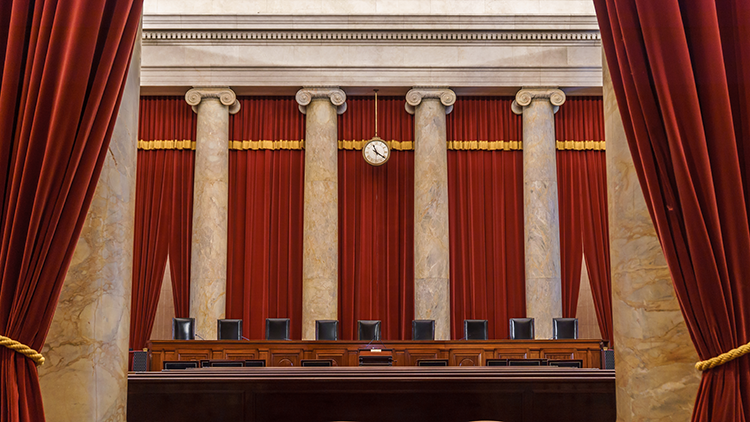In his first Supreme Court arguments, Kavanaugh takes serious approach and loses some 'faceoffs'

Justice Brett Kavanaugh waited about 20 minutes before asking a question during his first oral arguments on the Supreme Court on Tuesday.
Law.com reports that Kavanaugh “asked eight questions in two hours in a businesslike, straight-forward manner, pressing the advocates at times for more complete answers to his questions.” According to Politico’s account, “most of his queries were relatively mundane compared to more colorful comments and antics from some of the other justices.”
Laughter interrupted oral arguments more than a dozen times, but Kavanaugh “took a more serious approach, often asking how particular precedents applied to the cases before the court,” according to New York Times coverage.
SCOTUSblog reports that Kavanaugh lost a couple of “faceoffs” in which “two justices battle for the floor, continuing to speak until one relents.” Junior justices are supposed to defer to more senior justices, but the rule is not always followed.
Protesters were outside, but there were no interruptions inside the courtroom. Wooden chairs in the back of the court, typically filled by rotating spectators, had been removed and may have thwarted any protests, according to SCOTUSblog.
Sitting next to Kavanaugh, Justice Elena Kagan whispered something to him before arguments began, causing him to smile. After the arguments, she shook hands with him.
The Supreme Court heard two arguments on provisions of the Armed Career Criminal Act, which increases penalties in federal gun possession cases for those who have earlier convictions for three violent felonies or serious drug charges. The law defines violent felonies to include burglaries.
The issue in Stokeling v. United States was whether grabbing a necklace is a violent felony. The issue in two other combined cases—United States v. Stitt and United States v. Sims—concerns what type of burglary qualifies for sentencing enhancement. The defendants were convicted under state laws that allow burglary prosecutions for breaking into mobile homes and other mobile structures where people sleep. Supreme Court precedent, however, excludes vehicles from the generic definition of burglary.
At one point, Justice Sonia Sotomayor posed a hypothetical question about whether pinching combined with a robbery would qualify as a violent felony. She appeared to pinch Justice Neil Gorsuch to illustrate. The Wall Street Journal reports that he responded with “a face of mock astonishment.”
The Washington Post also covered the arguments. How Appealing links to additional coverage.



